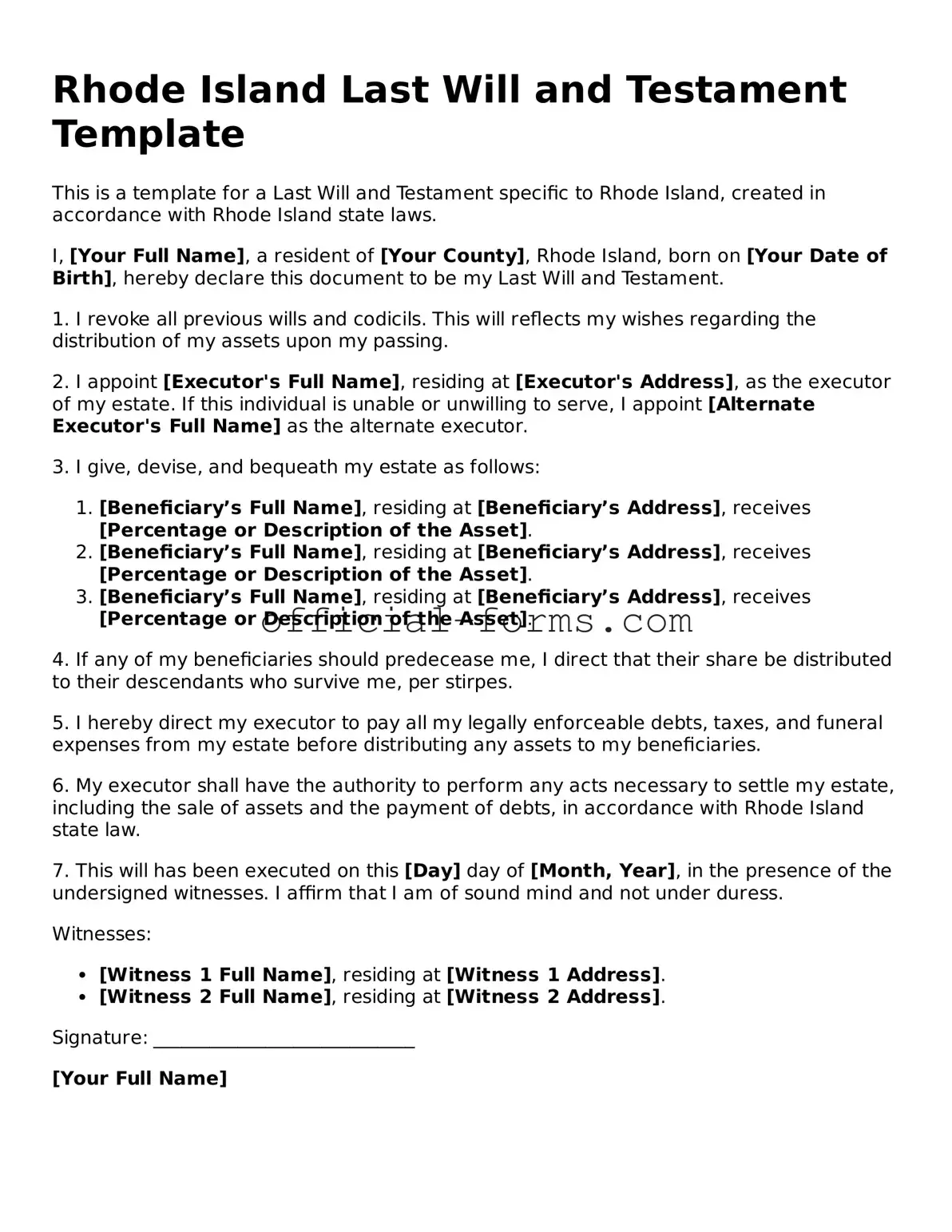Official Rhode Island Last Will and Testament Document
A Last Will and Testament is a legal document that outlines how a person's assets and affairs should be handled after their death. In Rhode Island, this form is essential for ensuring that your wishes are honored and your loved ones are taken care of. Understanding the specifics of the Rhode Island Last Will and Testament form can help you make informed decisions about your estate planning.
Open My Last Will and Testament Now

Official Rhode Island Last Will and Testament Document
Open My Last Will and Testament Now
Don’t leave your form incomplete
Finish Last Will and Testament online quickly from start to download.
Open My Last Will and Testament Now
or
➤ PDF
